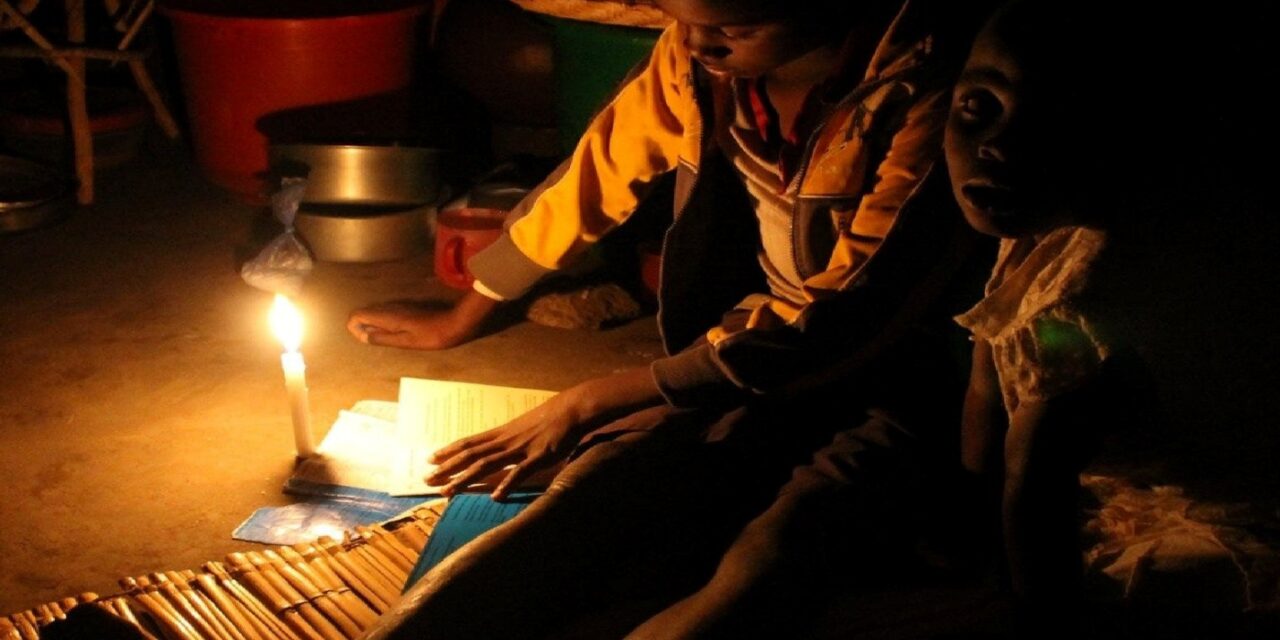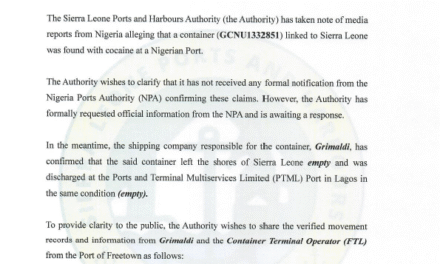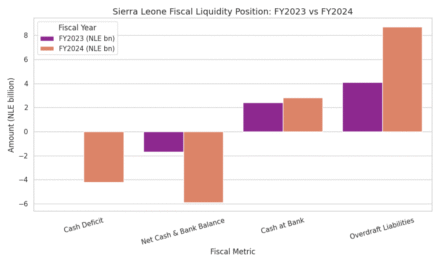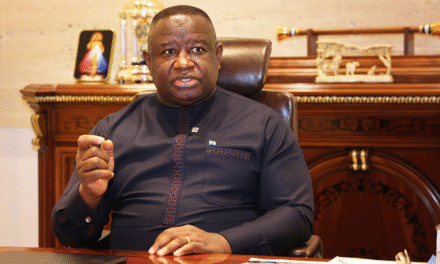Freetown, 18th August 2025 – More than 6 out of every 10 Sierra Leoneans- 64% of the population, still live without access to electricity, a stark indicator of the country’s chronic energy deficit that continues to undermine growth, productivity, and poverty reduction. This alarming statistic is detailed in the World Bank’s June 2025 Country Economic Memorandum (CEM), which paints a sobering picture of a power sector under pressure.
According to the report, electricity access in Sierra Leone remains among the lowest in Sub-Saharan Africa, despite years of reforms, infrastructure investments, and international donor support. Even those connected to the national grid are plagued by unreliable power supply, with frequent and prolonged blackouts hampering daily life and business operations.
The country’s total electricity consumption in 2021 was just 329 gigawatt hours (GWh)—a volume roughly equivalent to the annual power consumption of a single U.S. university, such as Stanford University, which recorded 324 GWh in the same year. This comparison underscores the minuscule scale of Sierra Leone’s national power usage, even relative to a medium-sized institution in a developed country.
On a per capita basis, Sierra Leoneans consumed an average of just 39 kilowatt hours (kWh)—a figure that stands at just 24% of the Sub-Saharan Africa median of 164 kWh. In contrast, countries like Ghana, Kenya, and Senegal have made steady strides in improving energy access and per capita usage through targeted reforms and expanded grid infrastructure.
For the private sector, the implications are devastating. The report reveals that over 60% of businesses in Sierra Leone experience at least four power outages every month, with each outage lasting an average of nine hours. These blackouts have a tangible financial impact: on average, firms lose 16% of annual sales due to electricity disruptions.
By comparison, firms across Sub-Saharan Africa report an average loss of 4%, and their power outages typically last for only about four hours. This means Sierra Leonean firms are losing productivity at four times the regional average, placing them at a significant disadvantage in terms of competitiveness and growth.
To cope with the instability, businesses rely on diesel-powered generators, which now supply more than a quarter of their total power needs.
The energy mix shows a country trying to diversify its power sources, but still heavily dependent on fossil fuels, particularly HFO, which remains expensive and environmentally damaging.
On a positive note, renewable energy now constitutes 45% of Sierra Leone’s generation capacity, compared to the Sub-Saharan African average of 35%. This is largely due to hydropower and the recent inclusion of solar into the energy mix. However, the impact is muted by the limited capacity and seasonal variability of these sources. Bumbuna, the country’s main hydropower station, is severely underutilized during the dry season, delivering a fraction of its potential output. The energy supply remains expensive, volatile and environmentally unsustainable.
The World Bank emphasizes that reliable, affordable, and accessible electricity is fundamental to Sierra Leone’s ambitions of achieving middle-income status by 2032. It warns that the current state of the electricity sector is not only a constraint to business, but a major threat to long-term national development.
“Addressing electricity access and reliability is not just about energy, it is central to Sierra Leone’s path to middle-income status,” the report states.
Investors, particularly in manufacturing, agro-processing, and digital services, cite electricity availability as a key consideration in investment decisions. Without major reforms to expand access, boost reliability, improve cost recovery, and attract private sector participation, Sierra Leone risks missing out on critical investments that could create jobs and stimulate growth.
Sierra Leone’s power sector remains one of its weakest links, casting a long shadow over its development prospects. With 64% of citizens still living in darkness, businesses bleeding revenue due to outages, and a national grid struggling with availability and inefficiency, the call for action has never been louder.
Tackling these challenges will require not just financial investment, but also bold policy decisions, stronger governance, and strategic partnerships, both domestic and international. As the World Bank makes clear, energy reform is no longer optional; it is essential for powering the country’s progress.










It’s enormous that you are getting thoughts from this piece of writing as well
as from our dialogue made at this time.
video chat with strangers 321 sex chat
бонусы казино бонусы казино